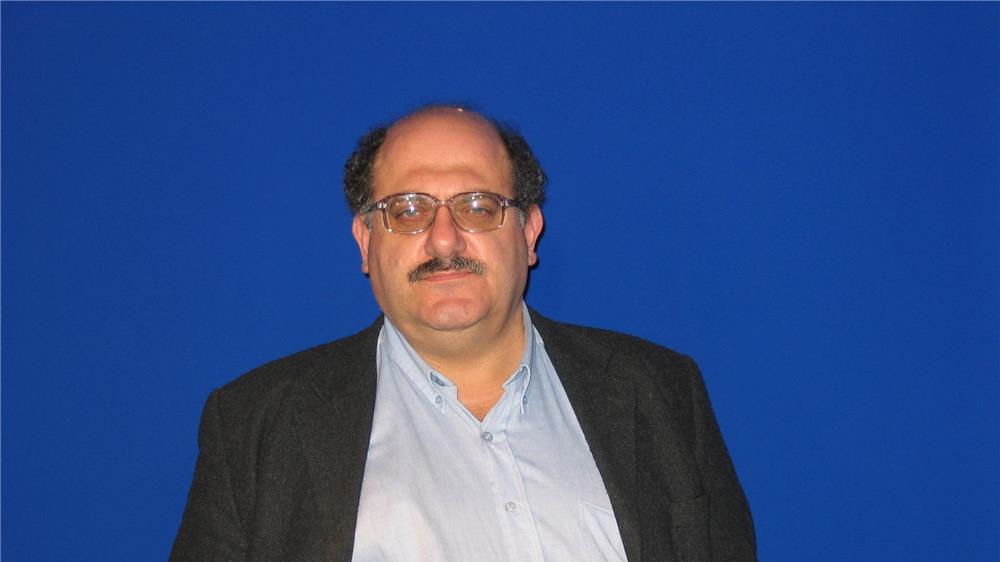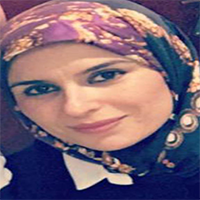تراه يمشي بخطى خفيفة سريعة، رغم أنه جاوز الستين من العمر.. تراقبه فتظن أنه أضاع شيئا ينهب الأرض بحثا عنه، وحين تُحاوره يفرش ملاءة مليئة بالنقد فتقول في نفسك: يا له من مشاكس!
أدركت خلال حديثنا أن تلك الهرولة ما هي إلا انعكاس رغبة حقيقية تتطلَّع إلى التغيير: التغيير في مناهج الإعلام ومناهج التعليم، ومنظور أبناء الأمة العربية للغتهم.. تسترسل في حديثك معه، فتعرف أنه لم يفقد شيئا، بل على وعي بما يمتلك، لكنه يجتهد ما استطاع لإعادة الوعي اللغوي إلى الألسنة العربية.
مشاكس؟ نعم، خصوصا حينما أجابني على سؤالي المتعلق بتأخر صدور كتابه "اللغة العالية" الذي صدر عام 2014.. نظر إليّ حينها شزْرًا وأجابني بابتسامة معاتبة: "ما زلتُ شابا".
هو عارف حجاوي مدير المعايير التحريرية ضمن قطاع الجودة في قناة الجزيرة، وصاحب القاموس الصحفي "اللغة العالية"، و"حياتي في الإعلام"، و"خلاصة علم النحو للإعلاميين".

اللغة العالية
في اللقاء الذي أجريته معه، تحدثنا عن كتاب "اللغة العالية"، والاسم مذيل بعنوان فرعي يقول "العربية الصحيحة للمذيع والمراسل ولكل صحفي". مع هذا، فإننا لا نجد مفردات عربية فقط، بل سنفتح أعيننا دهشة -أفترض ذلك- حين نراه يعرِّف سارْتْرْ، الفيلسوف الفرنسي الذي لم أنطق اسمه يوما –وكثيرون مثلي- إلا سارْتَرْ (بفتح التاء)، مفسرا ذلك برفض النطق العربي التقاء ساكنيْن.
سنفتح أعيننا كثيرا، دهشة وحماسة حين نصادف كلماتٍ مثل درابزين، أو هاشتاغ، أو جَعْجَعَ، وغيرها.
حسنًا، فالقاموس لا يحصر نفسه في المفردات ذات الطابع الإخباري، بل يغطي معظم المفردات التي يستخدمها أي صحفي في أي مجال من المجالات، ويصلح للاستخدام غير الصحفي على حد سواء.
لا يَعني حجاوي باللغة العالية أنها عصية على الوصول، فهي تنحني بسلاسة أمام من يمد يده إليها، لكنها لغة عالية القدر. والعالية -كما قال في مقدمته- اسم لمكانين في الجزيرة العربية، ولدت فيهما الفصاحة العربية. كما أن الكتاب ليس من كتب الخطأ والصواب، بل تخلى فيه حجاوي عن لغة القاموس لأن "الصحفي قد يجد خيارات كثيرة أمامه، أحدها أعلى من الآخر".
أنجز حجاوي كتابه الذي وصفه بالمسلِّي -لِما عرفه وتعلَّمه أثناء كتابته- في أربعة أشهر ونصف، وكانت أجزاء "تاج العروس" الأربعون أحد أهم المراجع التي استخدمها، لكنه يؤكد أن المرجع الأهم هو "ما أخطأتُ فيه وما أخطأ فيه زملائي".
كليات إعلام خائبة
لا بدَّ لمن يقرأ لحجاوي ويتابعه أن يلمح نفسا دفاعيا عن اللغة العربية، يقول عنه إنه نتيجة ما يراه من تقصير الجامعات وخيبتها اللذين يقودان للتوجه إلى الإنجليزية.. "لأن جامعاتنا منحطة وتفرّخ جميع القصور بقولها إن اللغة العربية ليست صالحة". مع هذا، فهو يؤكد أنه ليس ضد استخدام مصطلحات بالإنجليزية، على أن يبقى السياق عربيا. ويضيف أن هناك إحساسا بالدونية عند متحدثي اللغة العربية، كما أن هناك من يصر على تعقيد هذه اللغة وتصعيب استخدامها.
يحيل حجاوي تراجع العلاقة بين اللغة العربية والصحافة إلى كليات الإعلام التي لا يؤمن بأسلوبها التعليمي ويعتبرها "طنجرة"، بينما العلم الحقيقي هو أي تخصص، بل إنه كان يستبعد طلاب الإعلام عند مقابلته أشخاصا للتوظيف الإعلامي، علما بأنه درس الإعلام ودرَّسه لثماني سنوات في جامعة بير زيت مدلِّلاً على ذلك بقوله إنه عمل في شبكة "البي.بي.سي" 15 عاما والتقى صحفيين لامعين لم يدرسوا الإعلام، "فكليات الإعلام تُعطِّل الطالب أربع سنوات عن دراسة شيء مهم، وتدرِّسه ما هو تافه وممكن أن يدرسه في ثلاثة أيام.. خريجو كليات الإعلام مساكين".
ويشير إلى أن تأخر تطور اللغة العربية ناتج عن تأخرها في الاختراع، وبسبب نظرة الفرد العربي لها إذ يعاملها كما يعامل المرأة بالتضييق والخناق. مع هذا، ومع وجود الإنترنت، زاد عدد الكتاب في المواقع الإلكترونية.. "في الماضي كان البلد الكبير يبرز فيه هيكل أو هيكلان (فاهمة قصدي؟) ويستوليان على الكلمة ويحبسانها.. الآن الكلّ يكتب، يبرز الغثاء، لكن أيضا يبرز معه الثمر الطيب". يقول إن "الصحافة تؤثر في اللغة، والناس أيضا يؤثرون، أما الشباب فيصنعون اللغة بالتدريج، ونحن نستمسك باللغة القديمة فيأتي شاب يقول لك ممنوع أن تقول: نستمسك بل نتمسّك.. الشباب يأتون بصيغ جديدة.. الأجيال تحضر كلماتها وتفصِّحها".
ولأن اللغة العربية في المجتمع وفي الإعلام بشكل خاص أداة لتفاهم الناس، فإنه يتعامل معها من منطلق ليبرالي، منتقدا دور محرر المواد الإخبارية التقليدي الذي يمسك عصا الإرهاب ويركز على المشاكل التحريرية في اللغة، وينسى المشاكل التحريرية في المعنى. وفي معرض نقده يقول "المدققون اللغويون متخلفون عن الركب الحديث ويؤثرون القديم، والصحفيون يجارونهم ويقتبسون من القديم، بينما يُفضَّل أن يكون الصحفي معاصرا، فلا تضييق، بل نفتح الأسلوب قليلا كي لا تصبح الشخصية معلَّبة، فحينما نضع كلمات ثم نمنع الخروج عنها تماما (بصيروا يُشبهوا بعض)، وهذا يشبه البنات والمكياج الموحَّد، فدعوا المذيعين يستخدمون الكلمات بأريحية".
وعند حديثنا عن التحرير عرّجنا على استخدام مفردات يستخدمها المشرقيون أكثر من المغاربة وتفضيلها في الإعلام العربي، فقال دون تردد "نعم، هناك تمييز ضد اللهجة المغاربية في الإعلام العربي عموما"، وأضاف أن الفضائيات مشرقية التأسيس، لكن المغاربة أدخلوا فيما بعد بعض التعبيرات مثل "يتحصل على"، وقد بدأنا نسمعها من مذيعين مغاربة وقُبلت في المشرق العربي وهذا أمر جيد، فالمغرب العربي الكبير يحسّ بالغبن لقلة تداول أخباره، والسبب الأساسي أن الاضطراب السياسي في المشرق أكثر.. "فليحمد الناس في غرب العالم العربي ربهم".
خطأ شائع خير من صواب مهجور
وعن المجازات والتشبيه في اللغة الصحفية يقول: "المجاز والتشبيه يمثلان الطريق الأقصر أحيانا. مثلا، نقول: انفجر الوضع، وهو مجاز عندما تحدث اضطرابات كثيرة نشببها بانفجار القنبلة، لكن هذا المجاز يختصر علينا ثلاثة أو أربعة أسطر". ويضيف: "لغة الإعلام مملة لأن الإعلاميين مملّون، وليس السبب في اللغة نفسها بل في القوالب أو الكليشيهات"، وبهذا المعنى ينتقد التقارير القادمة من فلسطين ويطالب المراسلين بإعطاء معلومات لا بيانات سياسية. ويتابع أن الجانب الإنساني مغيّب في كثير من الأحيان عن لغة الإعلام، لأن الجانب الإنساني به فرح وحزن وليس مقتصرا على الحزن، في حين تقدم القنوات لطميات على فلسطين التي بها فرح أيضا.
أجبرنا الحديث عن المجازات المستخدمة في الصحافة على التطرق إلى تاريخ الصحفيين الأوائل الذين كتبوا بلغة عربية منمقة. وعن هذا يقول حجاوي: "الصحافة في العالم العربي مرتبطة بالأدب.. كانت قصائد شوقي تنشر في الصفحة الأولى بجريدة الأهرام.. الآن تغيّر الوضع وأصبحت الجرائد للسياسة وتطرد الأدب إلى صفحات الملاحق، وهذا طبيعي لأن السياسة تؤثر على رغيف الناس، فلو كان هناك تصريح برفع الأسعار كسعر الدقيق مثلا، فهذا أهم للقراء من آخر قصيدة لشاعر". ويتابع "في الماضي، كان الأغنياء وطبقة اجتماعية معينة يقرؤون الصحف، ثم نشأت طبقة من الموظفين والمعلمين والمهتمين بما يؤثر عليهم، لذلك فقد تنوعت الاهتمامات وسيطر عليها الوضعان الاقتصادي والاجتماعي، أما الصحافة الأدبية المعاصرة فلم تؤثر.. قديما أثّرت حيث تسلم أدباء إدارة الجرائد، أما الآن فلا.. راحت الجريدة وجاء الإنترنت".
وعن الجمود الذي تحمله اللغة الإعلامية أشار إلى أن من واجب الصحفي أن يوسع مفرداته.. "أريد أن يثري معجمه وأن يوسع مساحة لسانه، لا أن يستعمل كلمات جديدة، فالشيء الذي يزيد عن حده ينقلب ضده، كأن يستخدم المذيع كلمات غريبة، كالجوسسة، والتبيؤ، والتبيئة، والمؤلّلة (أي الفرق العسكرية التي تستخدم آلات)، أو السَّوق -بفتح السين- في "الاعتبارات السَّوقية"، أي الاستراتيجية. أنا مع إثراء اللغة دون تعقيد، ومع مقولة "خطأ شائع خير من صواب مهجور". ويرى حجاوي أن 95% من المآخذ ضد الصحفيين أنهم يتجهون إلى الرواسم (الكليشيهات).. نحن نكتب قوالب مستوردة من الماضي، وأريدنا أن نكتب ما نفكر فيه".
وعن نحت المفردات في الصحافة يعلق حجاوي ألا قاعدة معينة تقيد النحت، فمثلا هناك بعض التعبيرات التي تقبَّلنا نحتها مثل "القروسطية" نسبة للقرون الوسطى، لكننا رفضنا "الأفروآسيوية" وفضلنا "الإفريقية الآسيوية".
وفيما يتعلق بالاختصارات "اللغة العربية تتهيب من استخدام الاختصارات، لكنه أحيانا مهم، مثل (مُتَف) عن منظمة التحرير الفلسطينية، لأنه "بديش (لا أريد أن) أعد أسنان".
ومن بعض المفردات التي اجترحها حجاوي للاستخدام الصحفي مستغنيا عن أصلها الأجنبي، استخدام مفردة "الرافد" عوضا عن "Aston"، وهو الشريط الذي يظهر به اسم الضيف على الشاشة، و"الملقان" عوضا عن "Ear Piece"، وهي سماعة صغيرة جدا يلقّن المخرج بواسطتها المعلومات للمذيع.
هذه التقنية ليست جديدة، وهي محاكاة لما فعله أشخاص أسسوا للصحافة العربية كاللبناني أحمد فارس الشدياق الذي غير مفردة "الجورنال" التي كانت تطلق على الصحف قديما إلى "جريدة"، لأن العرب كانوا يكتبون على جريد النخل، يقول حجاوي. وكذلك الصحفي الذي سمع كلمة "أوتوموبيل" فاستخدم "سيارة" المذكورة في القرآن الكريم.
وعن تجربة شبكة الجزيرة في هذا المضمار، ألمح إلى أنها "حافظت على اللغة العربية وقصّرت في الابتداع، فالكلمة التي سيَّرتها الجزيرة في العالم العربي هي كلمة (عاجل) عوضا عن (Breaking News) أو أخبار طارئة، ووُفِّقت في ذلك. ومع هذا، لم يكن للجزيرة أثر لغوي كبير، بل أثر سياسي وإعلامي هائل بل زلزال، لكن لغويا أقلّ من ذلك".
قليل التصفيق
أبديت لحجاوي ملاحظتي التي خلصت إليها من حديثنا الذي امتدَّ لجلستين، سألته بلهجتي: "ليش مش عاجبك العجب؟"
ولم ينكر الرجل ذلك، بل هزَّ رأسه وابتسم كأنني أمتدحه قائلا: "بالإيجابي اسمه العقل النقدي، وسلبا مش عاجبه العجب ولا الصيام في رجب.. الصحفي يعتبر الخبر السيئ هو الخبر.. خذي مثالا: إذا بنيت عمارة فهذا ليس خبرا، وإذا انهارت على رؤوس ساكنيها فهذا خبر.. معيشتي في أكثر من بلد جعلتني أتسقط العيوب في كل مكان، ولحسن الحظ أو سوئه أنسى الحسنات".
يعترف حجاوي أنه حين يصفق فإنه يصفق لطلابه لأن "على المعلم أن يكون مشجعا ومحفزا، ولكنني قبل التصفيق أقلع عيونهم وأنا أطلِّع أخطاءهم.. أصفق لمن يعجبني حقا. لا تبهرني شهرة كاتب أو شاعر أو رسام، وإذا رأت عيناي في اللوحة (خرابيش) فأنا أقول ذلك ولا يهمني نقاد العصر الحديث".
تحرُّر عميق
وعن التحرّر في لغة الصحفي قال: "أنا مع المحرر العميق، بمعنى أن رسامي أميركا اللاتينية بلوحاتهم الضخمة وجدارياتهم تحرروا من الأساليب الأوروبية ووضعوا لأنفسهم فنا له هويته، مثل الرسامة المكسيكية فريدا كاهلو التي أصفق لها كثيرا.. الصحفي ابن صنعة، والصنعة صارت قواعدها معروفة، لا بروباغندا، ولا إخفاء للحقائق، ولا ثرثرة، فمن كان ابن صنعة فهذه هي حريته".
وعن الفرق بين لغة الصحفيين الأوائل والمعاصرين قال: "كانت لغة القدماء سهلة وصحفية، أما الجدد فكثير منهم يكتب مقامات بديع الزمان الهمذاني، ويحشرون التشبيهات العتيقة تفاصحا وتنطعا وكأن اللغة هي الهدف لا الأداة.. أقول لهم: قولوا ما عندكم بالفصحى البسيطة".
قلت له إن التنطع والتفاصح مما يطلبه الجمهور الآن وما يغض المسؤولون الطرف عنه، فكان ردُّه أن "عالمنا العربي -مع حالة التضعضع والهجمة التي يواجهها- أصبح يبحث عن الخلاص بتمجيد ماضيه والتمسك بما هو عتيق. وفي اللغة، الجمهور يطرب للعبارات الرنانة، ومسؤولو التحرير يتساهلون في الأمر". واستطرد "بالمناسبة عملت 11 سنة في البي.بي.سي بلندن، وكنا نتفاصح، ولكن كانت هناك الصرامة الإخبارية والخطة التحريرية لتلك المؤسسة، فهذا قلل من مخاطر التفاصح".
وفي محاولة مني للدفاع عن صحفيِّي اليوم، قلت له بحماسة "إذاً، من الذي خدع الجمهور وقال إن الطائرات تتساقط بالعشرات كالشجر؟ في إشارة إلى المذيع أحمد سعيد في "صوت العرب" عام 1968، فكانت إجابته: "هذا الشيء سمعته بأذني التي سيأكلها التراب.. التفاصح والكذب الإعلامي قديم عند أحمد سعيد.. كان إعلام الإثارة وبروباغندا النظام، غش لا مهنية. أما اللغة فهي معاصرة وهدفها التضليل والشحن. والآن بعض الصحفيين لديهم مهنية جيدة، ولكنهم يحشرون المفردات والعبارات العتيقة استعراضا للعضلات".
وعن الأخبار التي يُسمح -أخلاقيا- للصحفي بإخفائها قال: "في المحكمة يحلف الشاهد على أن يقول الحق، كل الحق، ولا شيء غير الحق. والصحفي في مهنته يحلف على قول الحق ولا شيء غير الحق. فأين ضاعت (وكل الحق)؟. هذه نعفي منها الصحفي، بمعنى نقول له: لا تكذب، وقد تضطر إلى إهمال بعض الأشياء إما بدواع قانونية وإما لأسباب سياسية".
سؤالي الأخير: هل تغرِّد خارج السرب؟
أجاب: نعم.








































